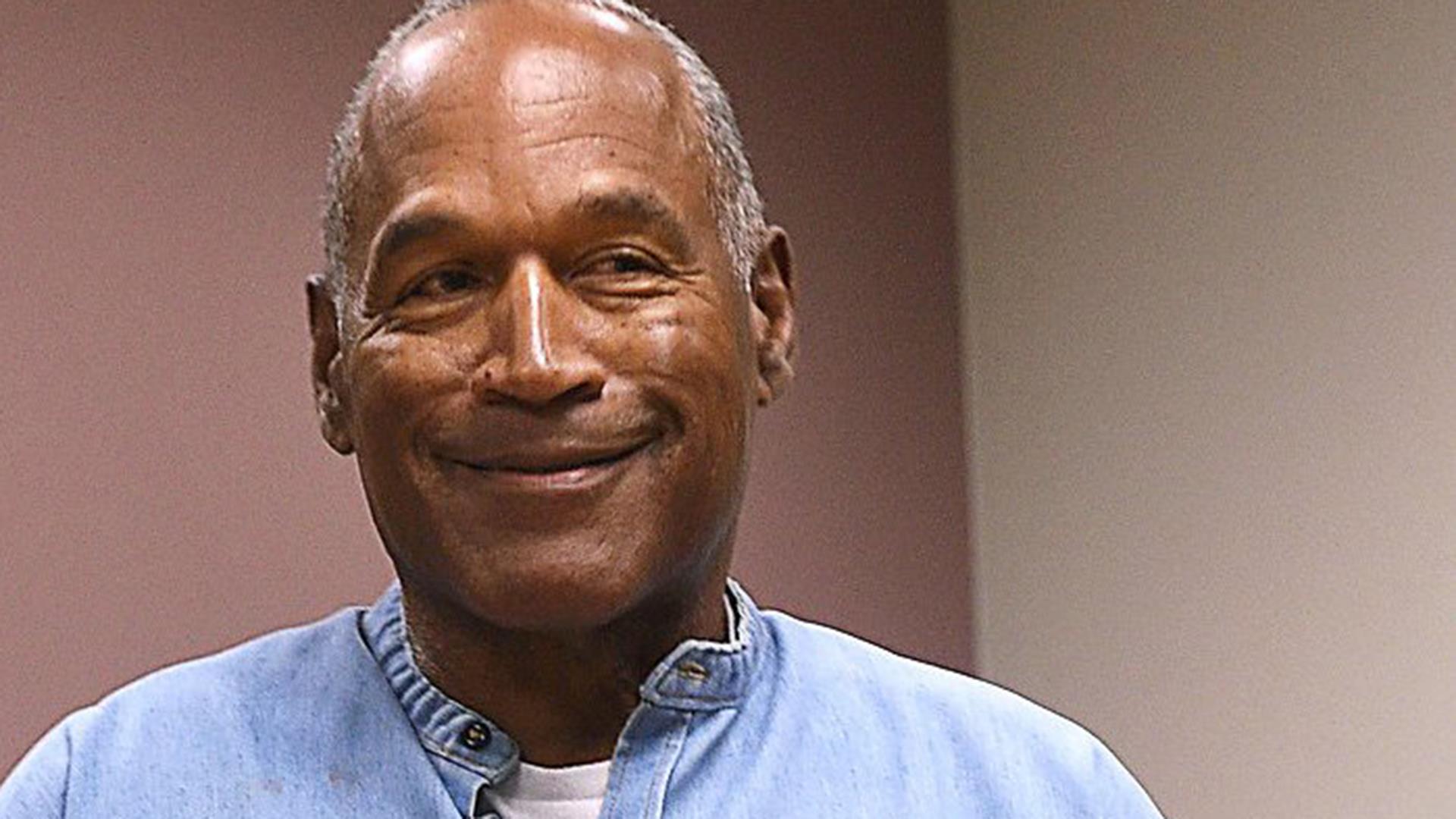The Enigmatic Journey Of O.J. Simpson: Triumph, Tragedy, And Legacy
How does a man’s life, so publicly celebrated and later scrutinized, continue to hold a nation's gaze? The enduring fascination with O.J. Simpson, a figure forever etched in the American consciousness, stems from a life of unparalleled athletic achievement, dramatic legal battles, and the relentless scrutiny of the public eye. Born in San Francisco, California, on July 9, 1947, Orenthal James Simpson's journey encapsulates the highs and lows of a life lived under the unforgiving glare of fame. From gridiron glory to a courtroom drama that captivated the world, Simpson's narrative is a complex tapestry woven with triumph, tragedy, and enduring controversy. His age, a significant marker in the passage of his life, now adds another layer to the ongoing examination of his legacy. This exploration delves into the milestones, the controversies, and the current realities of a man whose name remains a potent symbol in American culture.
O.J. Simpson's formative years were marked by the realities of growing up in San Francisco. Born into a working-class family, he navigated a childhood shaped by the challenges of a modest upbringing. This environment, however, provided a crucible in which his innate athletic talents began to emerge. Simpson's athletic prowess quickly became apparent, and his skills on the football field paved the way for his rise to prominence. His journey to national recognition began at Galileo High School in San Francisco, where his exceptional football skills caught the attention of college scouts. He then matriculated to the University of Southern California (USC), where his star truly ascended. Playing for the USC Trojans, Simpson became a dominant force in college football. His speed, agility, and power made him a nightmare for opposing defenses. This period culminated in 1968 when he was awarded the Heisman Trophy, the most prestigious individual award in college football, solidifying his status as one of the sport's brightest stars.
| Attribute | Details |
|---|---|
| Full Name | Orenthal James Simpson |
| Date of Birth | July 9, 1947 |
| Age (as of October 26, 2023) | 76 years old |
| Place of Birth | San Francisco, California, USA |
| Professions | Former NFL Player, Actor, Broadcaster, Author |
| Spouses | Marguerite Whitley (m. 1967; div. 1979), Nicole Brown Simpson (m. 1985; div. 1992) |
| Children | Arnelle Simpson, Jason Simpson, Sydney Brooke Simpson, Justin Simpson |
| Notable Achievements (Sports) | Heisman Trophy Winner (1968), NFL MVP (1973), Pro Football Hall of Fame Inductee (1985) |
| Legal Issues | Acquitted of murder charges in 1995; found liable for wrongful death in a civil suit in 1997; Convicted of armed robbery and kidnapping in 2007 |
| Current Status | Lives a relatively private life. |
| Reference | Pro Football Hall of Fame |
The 1969 NFL Draft marked the beginning of Simpson's professional career. Selected as the first overall pick by the Buffalo Bills, he stepped onto the stage of professional football, ready to compete at the highest level. Simpson's transition to the NFL was immediate and impactful. He brought a blend of speed, power, and an uncanny ability to navigate through defenses. As the focal point of the Bills offense, Simpson swiftly became a fan favorite and a dominant figure in the league. His impact on the game was not just statistical; he brought an undeniable charisma and flair that elevated his star power beyond the field.
- Leah Reminis Family Drama Divorce Daughters Journey
- Great Falls Mt Garage Moving Sales Find Deals More
Simpson's achievements in the NFL are etched in the record books. In 1973, he achieved the seemingly impossible, rushing for over 2,000 yards in a single season, a feat that was a record at the time and remains a testament to his exceptional skill. That same year, he was named the NFL's Most Valuable Player, further validating his dominance. His remarkable consistency and ability to perform at a high level year after year earned him six Pro Bowl selections. His induction into the Pro Football Hall of Fame in 1985 confirmed his legendary status and cemented his place among the sport's all-time greats. Simpson's influence went beyond mere statistics; he became a symbol of athleticism, entertainment, and the captivating spectacle of professional football.
Beyond the gridiron, O.J. Simpson explored avenues in the entertainment industry. His charisma and recognizable face made him a natural fit for acting. He capitalized on his fame, starring in films and television shows throughout the 1970s and 1980s. These roles allowed him to reach a broader audience and expand his brand beyond sports. These roles include notable appearances in popular comedic films, like "The Naked Gun" series, where he played the role of Nordberg. This role helped him to present an image different from his sports career. His participation in television shows such as "Roots: The Next Generation," expanded his profile as an actor.
The narrative took a dramatic and unforeseen turn in the mid-1990s. The 1994 murders of Nicole Brown Simpson, his ex-wife, and Ron Goldman, brought his life into a new and devastating spotlight. The ensuing trial was a cultural phenomenon, a gripping drama that captivated the nation. The legal proceedings, from the high-profile defense team, to the evidence presented, and the racial tensions that were inextricably woven into the fabric of the case, created a media frenzy. The trial's impact went far beyond the courtroom; it sparked a nationwide conversation about race, justice, and the intersection of celebrity and the law. The outcome, the not guilty verdict, sparked as much controversy as it did relief for Simpson, and the ramifications of that decision continue to be debated today.
- Antonio Aguilar Jr Biography Career And Family Legacy
- Colt Gray Details Emerge After Georgia School Shooting What We Know
The civil trial that followed delivered a different verdict, finding Simpson liable for the wrongful deaths of Brown and Goldman. This judgment added another layer of complexity to the legal battles he faced. Then came his conviction in 2007 on charges of armed robbery and kidnapping, stemming from an incident in Las Vegas. This conviction resulted in a prison sentence, further distancing him from the public life he had once enjoyed. Simpson's experience in prison and his subsequent release in 2017 altered the contours of his public image and his personal narrative.
The public's perception of O.J. Simpson is a complex and multifaceted one. Initially, he was a hero to many, a symbol of athletic excellence and an appealing personality. However, the murder trial irrevocably changed that perception, transforming him into a controversial figure. The legal proceedings, the evidence presented, and the differing interpretations of the events surrounding the case led to a wide range of public opinions. Some saw him as a victim of circumstances, while others viewed him with skepticism and distrust. Documentaries, television series, and the ongoing public discourse surrounding the case keep the narrative alive, ensuring that Simpson's story continues to be reexamined and debated.
Today, at 76 years old, O.J. Simpson lives a life that is far removed from the public gaze he once courted. After his release from prison in 2017, he has largely maintained a low profile. His presence on social media has given glimpses of his current life, but overall, he has chosen a more private existence. His age is a constant reminder of the span of his experiences and the passage of time. The discussions around his legacy continue, but he is now viewed more privately.
Simpson's story is one of remarkable highs and devastating lows. His athletic achievements, his foray into entertainment, and the sensational legal battles that defined a significant portion of his life all contribute to the complex legacy he leaves behind. From the football field to the courtroom, his journey is a case study in fame, public perception, and the enduring impact of pivotal moments. His life's events, his choices, and the consequences that followed have cemented his name as a name forever in American culture. The fascination with his life mirrors the broader societal fascination with celebrity culture, where the line between admiration and judgment often blurs.
As society continues to grapple with issues of race, fame, and justice, O.J. Simpson's story serves as a lens through which these complexities are explored. His case intersects with the narratives of other high-profile figures like Michael Jackson and Bill Cosby, where public perception shifts dramatically in the face of scandal. The media’s portrayal of these figures highlights the dual nature of celebrity: the elevation to hero status and the inevitable scrutiny that follows. In this context, Simpson's narrative becomes a microcosm of the larger cultural dialogue about fame and accountability.
His legacy, however, extends beyond the confines of his personal story. It reflects the broader trends in American society, where the intersection of race, wealth, and justice often becomes a battleground for public opinion. The trial and its aftermath sparked discussions that are still relevant today, particularly in the era of movements like Black Lives Matter. The way Simpson's story unfolded parallels the experiences of other African American celebrities who faced systemic racism and bias in the legal system.
Despite the controversies, Simpson remains a pivotal figure in American sports history. His achievements on the field are unmatched, and his induction into the Pro Football Hall of Fame stands as a testament to his greatness. Yet, his story also serves as a cautionary tale about the perils of fame and the pressures it can impose on an individual's life. The public's insatiable appetite for scandal and drama often overshadows the personal struggles and triumphs of those in the spotlight. Simpson's life is a reminder of the complexities inherent in fame and the lasting impact it can have on a person's legacy.
As the years pass, the narrative surrounding O.J. Simpson continues to evolve. New generations discover his story through documentaries, books, and films, each offering a fresh perspective on the events that shaped his life. The enduring interest in his story speaks to the universal themes it embodies: the allure of fame, the fragility of public perception, and the enduring quest for justice. In many ways, his story is a reflection of the American experience, where the pursuit of greatness is often accompanied by the challenges of identity, race, and societal expectations.
In conclusion, O.J. Simpson's life is a testament to the complexities of human nature and the societal forces that shape individual destinies. His journey from a working-class youth in San Francisco to a sports icon and, ultimately, a controversial figure, highlights the highs and lows of fame. As society continues to grapple with the issues his story raises, his legacy will undoubtedly remain a subject of debate and reflection for years to come.
- Sauk Rapids Obituaries Find Services Honor Loved Ones
- Blackfoot Id Obituaries Find Recent Past Death Notices Today

How Old Oj Simpson

O.J. Simpson Denies Being Khloe Kardashian's Biological Father 'Rumor

O.J. Simpson Reacts To Death Of Legendary NFL Running Back The Spun